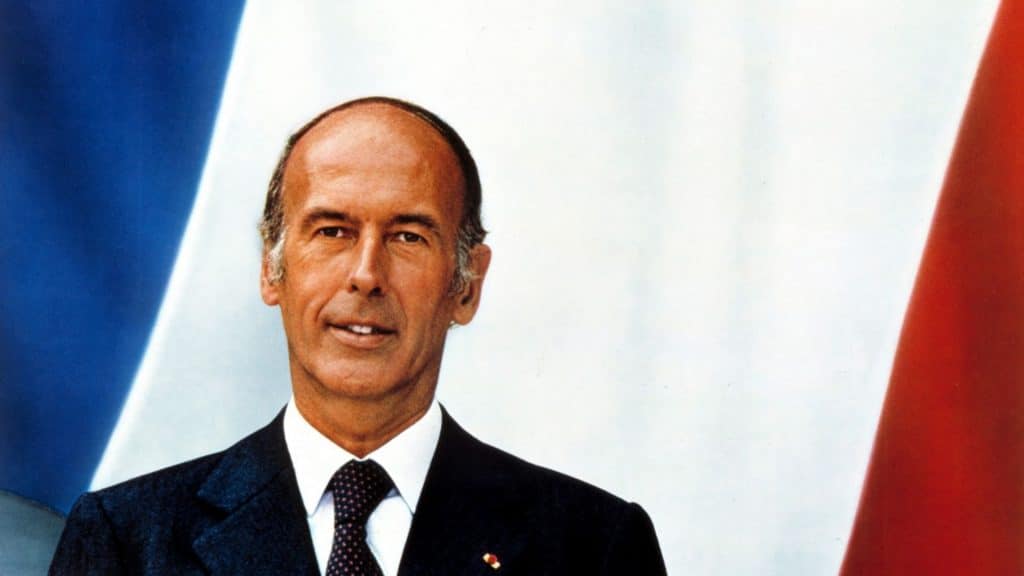He was also one of the victims of Covid: Who is Valery Giscard d'Estaing?
Former French President Valery Giscard d'Estaing died at the age of 94 after contracting Covid-19 in December 2020. In 1974, at the age of 48, he defeated his socialist rival Francois Mitterand and became the youngest President of the last century. G7 meetings also started with his initiative.

Valéry Giscard d'Estaing, the center-right politician who was president of France between 1974 and 1981, died due to coronavirus at the age of 94. Giscard d'Estaing, who pioneered the beginning of a new and modern era in France, was also one of the architects of the European Union (EU) integration process in the country.
Giscard d'Estaing, who took office at the age of 48, was the youngest person elected president in France at that time. In 1974, he defeated his rival, socialist François Mitterrand, and became president, but he could not be re-elected after his seven-year term ended.
Valéry René Marie Georges Giscard d'Estaing (2 February 1926 – 2 December 2020), also known as Giscard or VGE, was a French politician who served as President of France from 1974 to 1981.
The period when Giscard d'Estaing ruled the country is important as it was the breaking point of de Gaullist conservatism, which was influential in France after the Second World War. D'Estaing, who implemented radical reforms such as legalizing abortion, liberalizing divorce laws, and lowering the voting age to 18, also supported France's entry into the monetary union and the use of the euro.
On the other hand, the French leader was one of those who opposed Turkey's EU membership. Arguing that Turkey should not join the EU because it is a Muslim and non-European country, Giscard d'Estaing said in 2002 about Turkey's EU process, "In my opinion, this could mean the end of Europe."
d'Eastaing was known in France for his radical reforms, such as legalizing abortion, making divorce easier, and lowering the voting age to 18.
In Europe, he also played a role in establishing the European monetary union with his close cooperation with German Chancellor Helmut Schmidt. Like Schmidt, he favored close relations with the United States.
G7 meetings also started with his initiative
He was elected in 2001 to lead the writing of the EU Constitution, which was later rejected by French voters and ended his active political life after losing his parliamentary seat in 2004.
In May 2020, French prosecutors launched an investigation into allegations that he groped a German journalist after the interview, and he denied the allegations.
After filing a criminal complaint, the German journalist said, "I decided to tell about the harassment against me. Because I think people should know that a former French President sexually harassed a journalist after an interview."
Interesting details from his life
The period between 1945 and 1975 is called "trente glorieuses" in France, which we can translate as "thirty glorious years". Roughly speaking, this period, which begins with the liberation of France and ends with the oil crisis, is a period of great economic development and the spread of prosperity to the base.
The painful, unstable 4th Republic, founded in 1944, entered a final crisis with the rebellion of the generals in Algeria in May 1958, and with the return of the country's national hero, Charles de Gaulle, and the Constitution of the 5th Republic, which increased the powers of the executive and introduced the semi-presidential system, France is today The constitutional regime that still exists emerges.
De Gaulle would remain president of the country until his resignation in 1969. However, France would undergo major social changes in the 1960s, and the Algerian War and the events of 1968 would create a new society. Although Charles de Gaulle's successor, Georges Pompidou, who resigned in 1969, was also one of the general's close colleagues. He continued all of De Gaulle's policies - with only the exception of social conservatism - until 1974. However, in 1974, Georges Pompidou died in office as a result of a rapidly progressing illness, and the French Fifth Republic had to elect its third president.
In the 1974 elections, former finance and economy minister Valéry Giscard-d'Estaing, who used the political label "independent republican" and was in touch with the Gaullist right, but differed from them in some respects, defeated the socialist candidate François Mitterrand and the Gaullist candidate (one of Pompidou's prime ministers). ) Defeats Jacques Chaban-Delmas and is elected president.
The "glorious years" during his presidency are over, the oil crisis and frightening unemployment figures have sent France into a panic. VGE sees itself more as a reformer. The main emphasis of his politics between 1974 and 1981 was to modernize France, and this, above all, carried the risk of alienating the Gaullists with whom he shared the same base. Perhaps the most remembered reform of the VGE today is the law known as the "Simone Veil law" after the Minister of Health. This law legalized abortion – without any medical necessity. This was an unexpected move for a right-wing politician in France at the time.
In addition, the voting age is lowered to 18, divorce is made easier, and public space, especially television, is made polyphonic. The traditional, rural image of France from the beginning of the century with high-speed trains (TGV) and nuclear power plants will become history, and the typical social appearances of late modernity will emerge. As a leader accused by both the right and the left of Americanizing France, VGE left his mark with his style and charisma during a short but critical period of a society experiencing rapid change.
